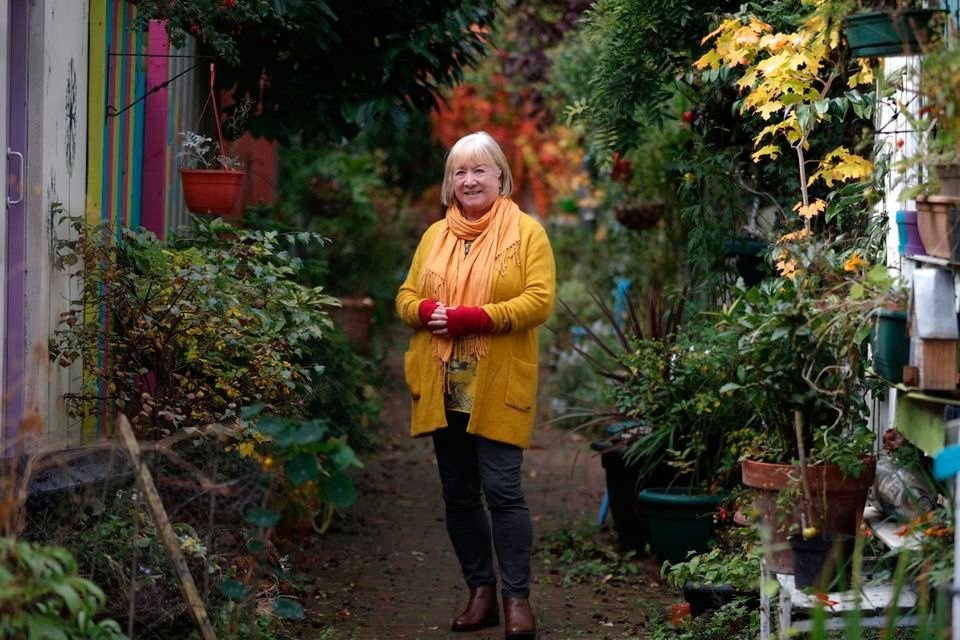It was once notorious for student chaos, with all too frequent tales of wild antics and drunken revelry, but the Holylands in Belfast is pushing back against its “outdated” party-town image.
The days when it was viewed as a hotspot for anti-social behaviour are over, say long-term residents and students, who are “fed up” with its bad reputation.
More positive stories are starting to emerge, such as transformed alleyways and, this week, the tale of four Co Down students who ran a marathon through the streets.
Brid Ruddy, a resident for over 30 years, said residents have seen a “significant drop” in unruly behaviour.
“A popular story over the years has been reports of the Holylands on St Patrick’s Day. It’s completely different now – there was no trouble last year or the year before,” she said.
“We as residents have experienced a significant drop in anti-social behaviour. It is a nicer environment to live in now.”
Read more
While acknowledging that anti-social behaviour still exists, Brid emphasised that “you can’t blame the entire student population” for the actions of a minority.
“As residents, we have never stereotyped all students as anti-social. While it exists, it’s not true of everyone,” she said.
“Most students have never caused any issues. You can’t dismiss the entire student population because of the actions of a few.”
The Holyland is so called because of its street names: for example Jerusalem Street, Palestine Street, Damascus Street and Cairo Street.
The square kilometre area with its affordable and distinctive terraced housing is synonymous with the student experience, providing a living space for thousands of young people.
However, for several years it regularly hit the headlines due to unruly behaviour around St Patrick’s Day, and other key dates of the year.
But things are changed, locals insist.
Brid was instrumental in a regeneration initiative with Queen’s University’s Handy Helpers group, which engages students in various community volunteering projects.
They take practical steps aimed at improving the area’s reputation. Knowing that dumping was a problem, they transformed a neglected alleyway into Wildflower Alley by clearing rubbish and planting greenery.
Brid Ruddy.
This, she said, has changed student and local attitudes. She urged relevant authorities to “step up” with similar projects.
“If you live in an area with widespread dumping and cars parked on pavements, it looks like nobody cares, leading to poor behaviour,” Brid added.
“But in an area where residents are making an effort, the situation can improve. Students could see that our part of the area was different, and they had to be quieter.”
Cathal McGivern, an engineering management student at Ulster University, has lived in the Holylands for five years.
He believes the local culture extends beyond drinking and called for more positive representation.
“I’ve been reading articles about Halloween and Paddy’s Day in the Holylands, and honestly, I don’t see the issues they describe,” he said.
“I think there’s an effort to push a specific narrative. People often react without doing any research, simply complaining about students in Belfast. Some even suggest kicking students out of university, despite clips being from nearly a decade ago.
“This is my fifth year living in Belfast, and I’ve never witnessed any anti-social behaviour.
“While the Holylands developed a bad reputation in the early 2000s and 2010s, I think things have simmered down since then.”
Cathal added: “Many people here take part in other things. Personally, we play five-a-side and student soccer twice a week. I’m in university Monday through to Thursday and go home. I work Friday, Saturday and Sunday. I’m not sure where people think we have the time to cause all of this supposed constant chaos.”
The student from Newry thinks some poor quality accommodation adds to the unfair reputation of students.
“I think students should be better protected from bad housing. Rent is ridiculously high right now, and some houses are in shocking condition,” he added.
“Personally, I didn’t have this problem, but I’ve heard horror stories about the state of some properties.”
Clodagh Gillen, an Ulster University student also living in the Holylands, argues that the area’s reputation for disorder is often exaggerated.
She said the “sensationalised” image doesn’t “reflect the reality of everyday life” in the area.
Clodagh Gillen (left) with friends Rhiana Farry, Emma Mullholland, Fionnuala Maguire and Maggie O’Boyle.
“The media tends to sensationalise chaotic incidents, which creates a skewed image of the Holylands as a rowdy, disorderly place,” she said.
“This doesn’t actually reflect the reality of everyday life for most students who are just here because they want to live closer to university and it’s the cheapest place to do so.”
She added: “I have friends from down south who were scared to stay in, and park their cars in, the Holylands because of things they had heard or seen in the media. They were then pleasantly surprised by the reality of staying here.”
The student from Antrim lives with five friends and acknowledges that alcohol is a “huge part” of the Holylands culture.
However, she emphasises the best aspect of life there is the community spirit among the students.
“I do think that drinking is the biggest part of Holylands culture, but I also feel that another aspect is the sense of community,” she added.
“Everyone looks out for each other, and it’s nice to know you’re always just a short walk away from someone you know.
“I love living in the Holylands. Even though my family only lives 25 minutes down the road, I would much rather be here with my friends than sitting at home feeling like I’m missing out.”
The marketing student added that it is “refreshing” to see positive media coverage of the area, such as the Holylands marathon runners who were featured in the Belfast Telegraph this week.
Cormac Greene, Michael Greenan, Eoin Killen and Shane Quinn ran the equivalent of 26.2 miles around the streets, just “for the craic.”
Cathal McGivern (centre) with friends John Walsh (left) and Ethan Doyle (right)
Chief Inspector Mark Conway, the PSNI South Belfast Area Commander, said: “The safety and wellbeing of the wider local community, along with that of students, is a priority for us.
“I want to reiterate our message that the Holylands area of south Belfast is a residential area — not a party or nightlife destination.
“If you have recently moved to the Holylands, you have a responsibility to be a good neighbour, as the residents of this area are fed up dealing with anti-social and criminal behaviour on their doorsteps.”


